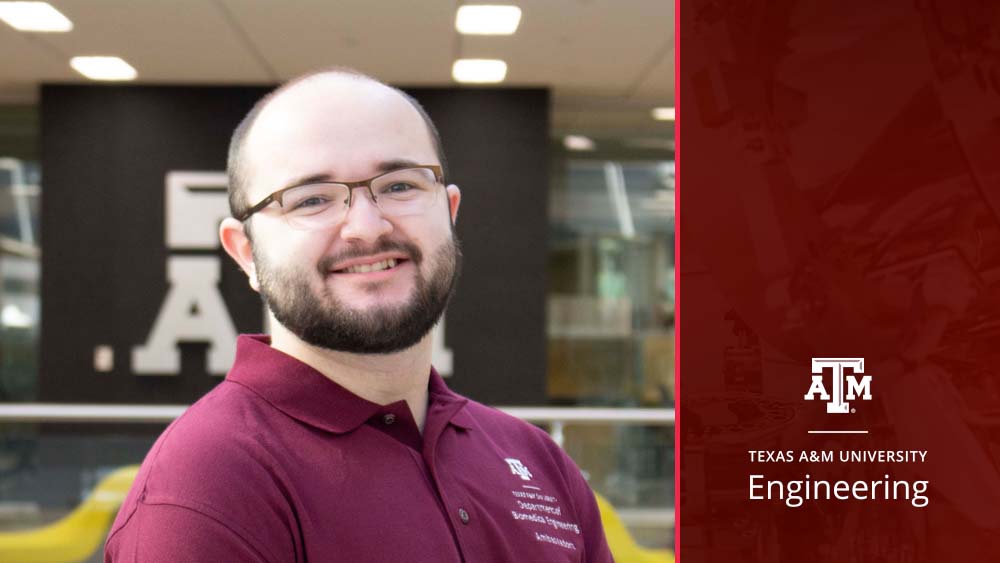
Jacob Gartrell, a biomedical engineering junior at Texas A&M University, is focused on the biomolecular and cellular engineering track. One highlight of his 2021-22 school year is he plans to study abroad in the spring through the semester exchange program with Swansea University in Wales.
Q: Why biomedical engineering?
A: I always really liked biology and math. I was in the academic decathlon in high school, and my senior year at the science unit was the medical application of lasers. Initially, I thought, “Oh, I probably won't like this.” And then I read about it even past the competition. I also had a really influential biology teacher, and my STEM teachers were always really supportive.
Q: Why biomolecular and cellular engineering?
A: That field is so new and so innovative. We're still learning how to model cell processes and try to take advantage of these systems. I have an emphasis area in bioinformatics, so I really like the computational side of modeling cell systems.
Q: Are you involved in research?
A: I do research in the computer science department on Parkinson's tremors. There's this process called deep brain stimulation, and about 37% of deep brain stimulation patients have really bad patient outcomes, not because of the implanted device but because of faulty programming on the neurologist side because they don't have enough information. I'm trying to develop a system where it can monitor tremors on a Fitbit and say, “OK, your tremors escalated this far in this week.” We can take this data and say, “These are the parameters that you might need to look at your next meeting,” giving that neurologist more information to make the clinical outcome better.
Q: You’re planning on studying abroad in the spring. What drew you to that experience?
A: I was all set to study abroad in Germany in 2020, and then everything was canceled. I stayed with a host family in Germany throughout high school, so I was all on this study abroad bug. And then I came here thinking, “OK, I'm going to do the Germany biosciences course. I'm going to go back; this is going to be amazing. And then it got canceled. I looked into other programs, and specifically with Swansea, they have a lot of equivalent courses for biomedical engineering, so I don't have to ever get behind.
Q: What has been your favorite class in biomedical engineering?
A: I honestly would have to say BMEN 207. I’m in honors, and the honors project was an introductory machine learning project. I had no clue what machine learning was. I remember binge-watching hour-long videos from MIT. At first, things were going so over my head, but then I just kept doing it and doing it. I made a classification model that worked at the end, which was really cool. That really inspired me to think, “If I want to do this, I want to go into a lab in machine learning, and I have some of the skills necessary to do that.” That was really formative.
Q: What is your ideal career path after graduation?
A: I'm a Brockman Scholar here at Texas A&M. That means that I get to do my master’s in science and business, so that's my next step after my undergrad. After that, I really want to go into the biotech industry in computational diagnostics or anything in the bioinformatics scene. I don't really know if that entails going back to get further graduate studies in biomedical engineering or computer science or something, but I'm still evaluating my options.
Q: Any final thoughts?
A: I had to tread water a little bit freshman year. It was kind of a shock. Then going into biomedical engineering, I'd say it didn't get any easier, but I was a lot more interested in it. I think biomedical engineering is really for people who are interested in health care. It's really rewarding in the classes, and it doesn't feel as much like work because you're doing something you're interested in.